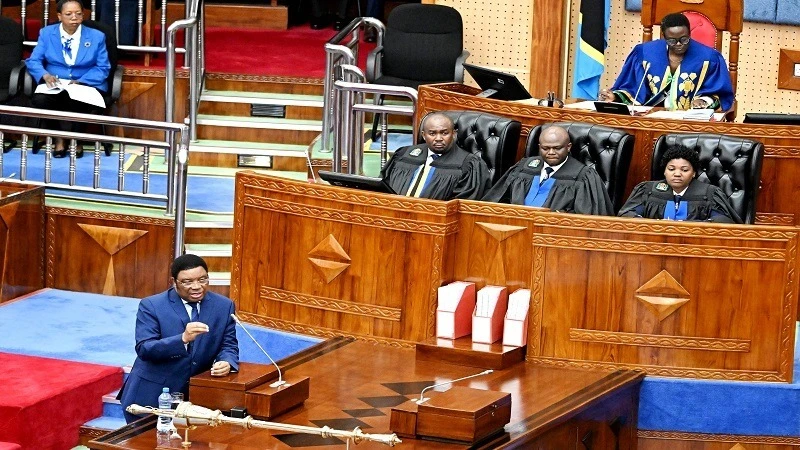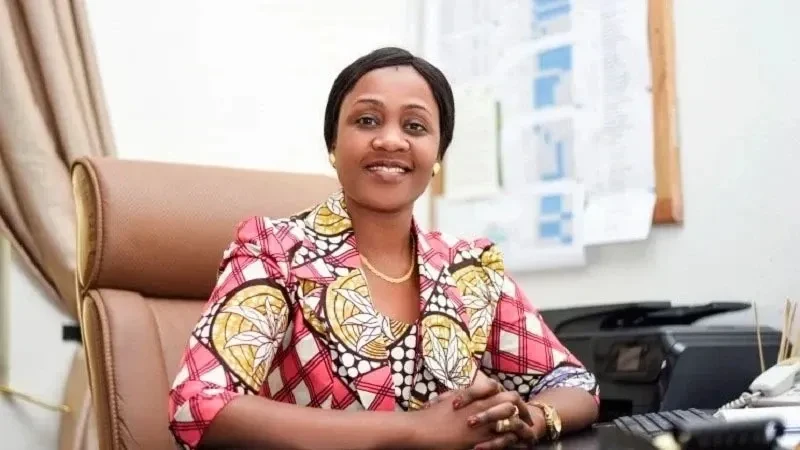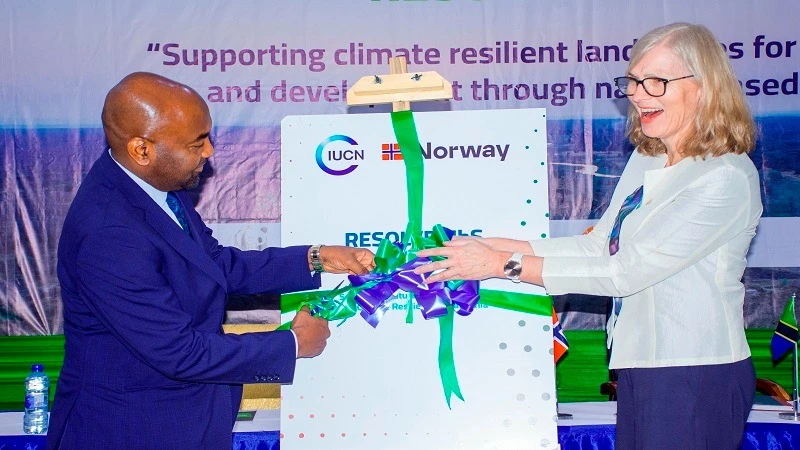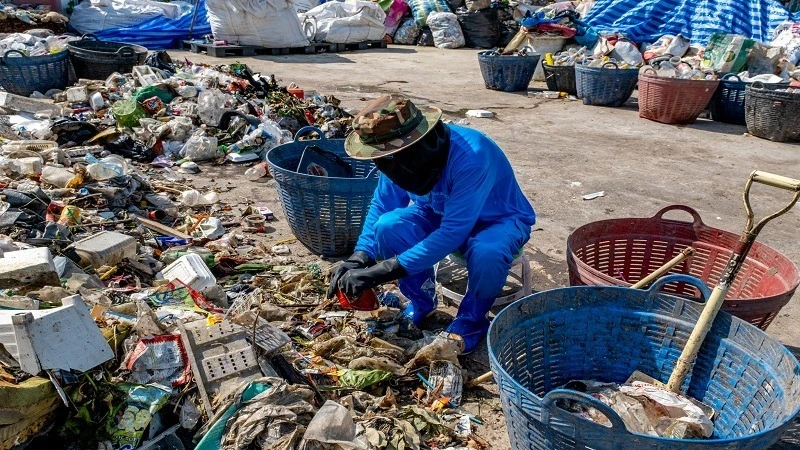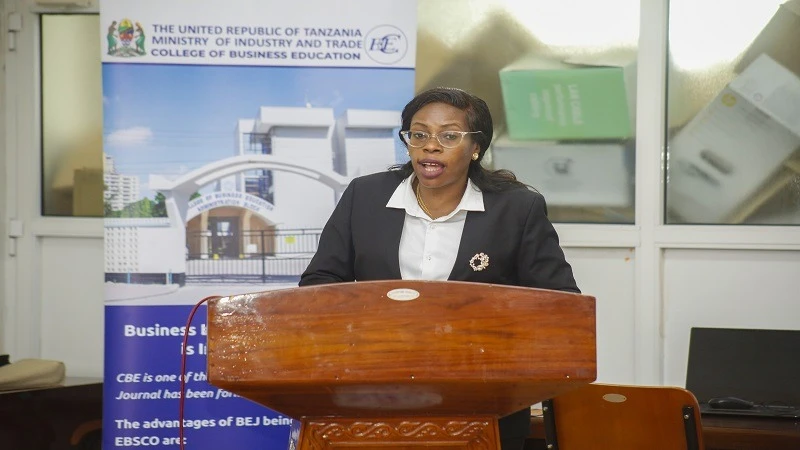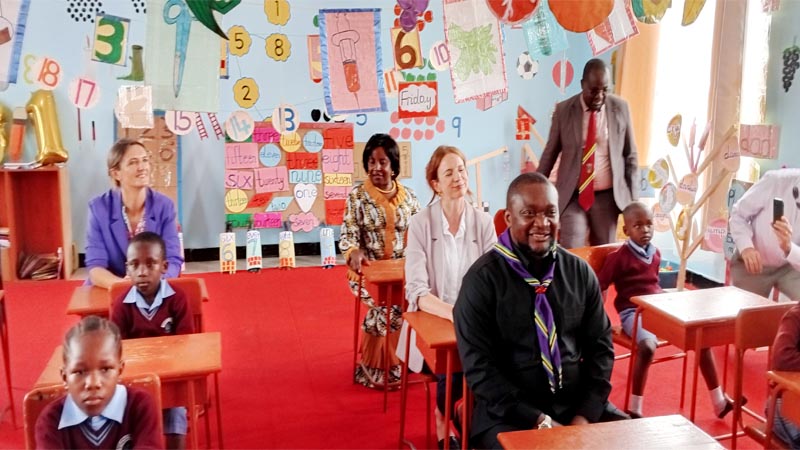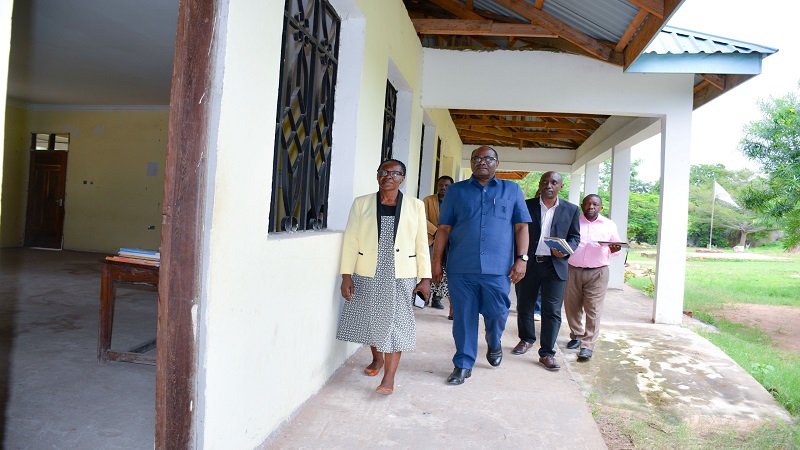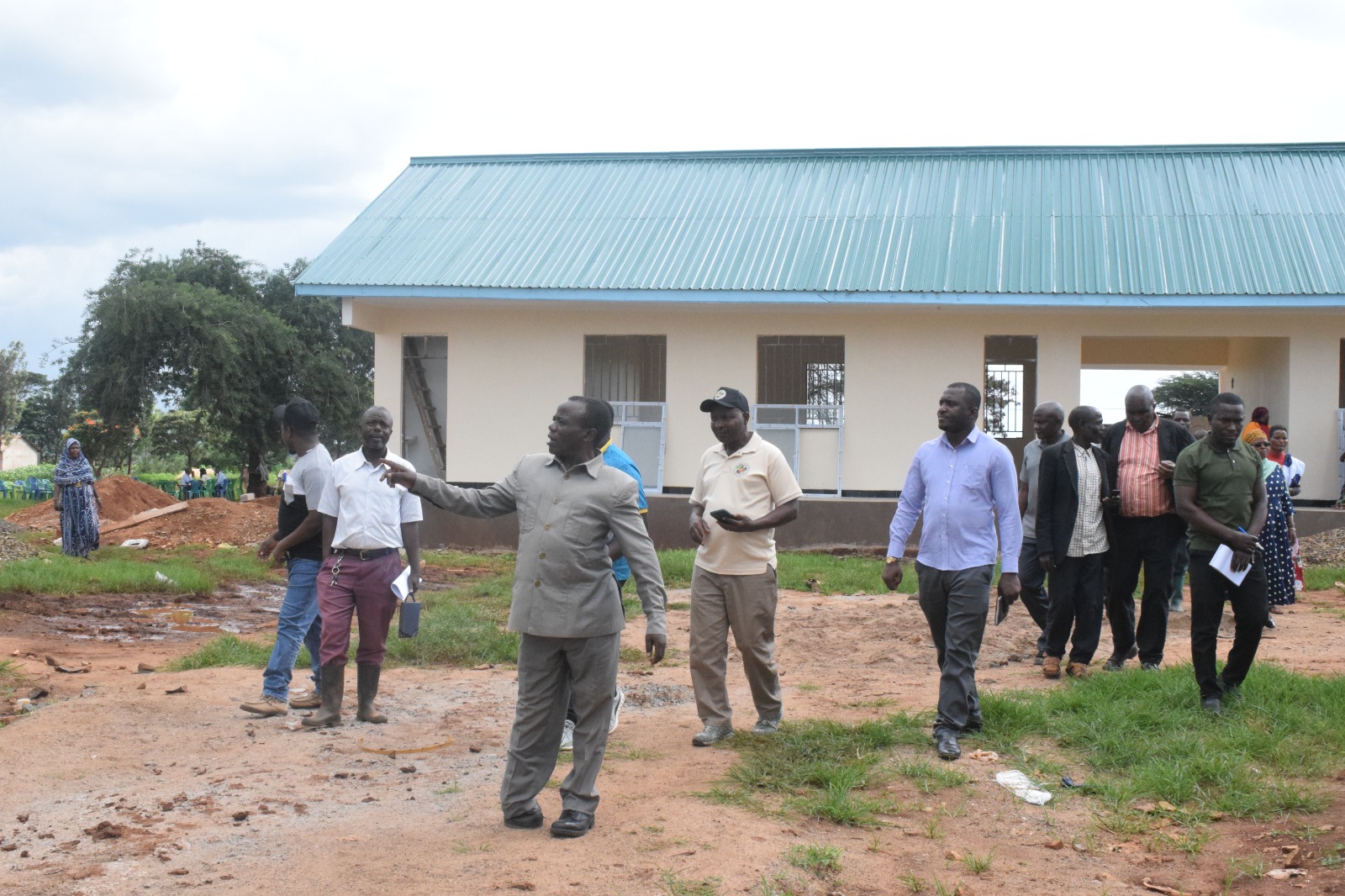How poor rural roads hold back women’s economies
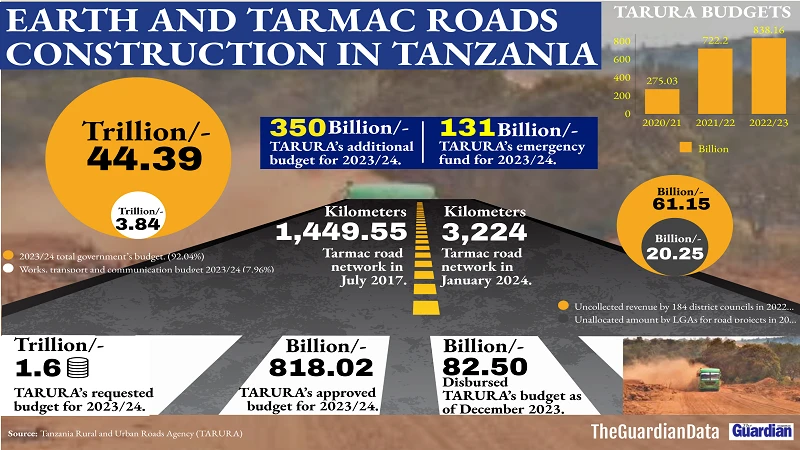
The public is anxiously waiting to see when every corner of the country will finally be linked by a seamless network of smooth, modern tarmac roads. The question on everyone's mind is, when will this long-awaited dream become a reality.
The Tanzania National Roads Agency (TANROADS) needs to be allocated with 37trillion/- for completion of a countrywide tarmac road network covering 24,849 kilometerThe required money for improving the country’s earth roads to tarmac roads is 0.86 percent more than the 2021/22 government’s overall budget that stood at 36.68trillion/-.
Only 3,224 kilometers of tarmac road network had been constructed since Tanzania was born on April 26, 1964 an equivalent of 12.97 percent of the total required tarmac road network.
The scenario is posing doubts among young women leaders in higher learning institutions.
They are rising up and pleading for the improvement of rural earth roads to tarmac roads for economic growth.
The today’s and future expected leaders are calling upon the government to prioritize budget allocation for construction of tarmac roads in rural areas to facilitate connectivity so that women employed in the agriculture value chain among other sectors, are facilitated to transport their agricultural harvests to urban markets.
Poor road infrastructures in rural areas are also blamed by the young women elites for claiming lives of innocent pregnant women that mostly occurs during rain seasons when they are forced to travel long distances to urban located hospitals for specialized reproductive health services.
Esuvath Daniel, a bachelor’s degree student at School of Journalism and Mass Communication (SJMC) who serves as the Children, Women and People with Disabilities Lead Journalist at the school, said that in 2023/24 budget valued at 44.39trn/-, government administrative activities have been allocated 11.89trn/-.
She said 6.31trn/- has been allocated to service the national debt, 5.95trn/- for education, 6.68trn/- for defence, security and the rule of law while works, transport and communication has been allocated 3.84trn/-, 3.05trn/- for the energy sector and the health sector has been allocated 2.41trn/-.
“We want the government to come up with a women empowering-led budget in 2024/25. The budget allocation for the current financial year shows that transport, energy and health sectors are allocated with the smallest stake of the total 44.39trn/- budget,” she defended.
She argued that the meagre allocated funds for transport, energy and health sectors contradicts the 2023/24 budget in which the government pledges to focus on the priority areas of the Third Five-Year National Development Plan 2021/22-2025/26 that emphasizes improvement of citizens’ lives and well-being.
“The well-being is defined in the 2023/24 budget book as reducing poverty and generating employment. Thus, budget priorities are focused on improving sectors that increase production and the number of jobs;
It mentions these sectors as agriculture, livestock and fishing, energy, construction, transport and tourism,” she clarified.
Vivian Robert, students’ government Vice President at Mzumbe University Main Campus Morogoro, said that an inclusive gender-based budget by both central and local governments is vital if rural women's lives are to be uplifted.
“The majority of rural women are employed in the agriculture sector. Poor infrastructure is a hindrance to them in accessing urban markets and factories for processing and value addition of their agro products;
In my opinion, budget plans and allocations have not yet taken women affairs into serious consideration,” said Robert.
She argued that in the current fiscal year 954.3bn/- has been allocated for local government authorities’ expenditure of which only 86.4bn/- has been allocated for the completion of health centers, clinics and district hospitals rehabilitation while there isn’t a specified budget for roads.
“However, of the central government’s total budget for works, transport and communication tuned at 3.84trn/- rural and urban roads are allocated 710.3bn/- which as of January this year only one-third of it has been disbursed by the treasury,” said Robert
Vanessa Rutabana, the sitting President of the Students’ government at Muhimbili University of Health and Allied Sciences (MUHAS) said that most of the rural areas are not connected to town centers with tarmac roads thus scaring away transporters.
“You may find that most of the broke commuter buses that are not allowed to operate in urban areas have relocated to rural areas where roads are badly affected by rain thus offering poor transport services;
As a matter of fact, these commuter buses take a single route a day that means if you miss it today you have to wait for tomorrow,” said Rurabana.
According to her, poor rural infrastructure are a hindrance for women engaged in agriculture, arts and weaning, poultry and pastoralism to properly benefit from their hard work.
The reporter has spoken to other women university leaders for students’ governments who shared related concerns from the National Institute of Transport (NIT), Sokoine University of Agriculture (SUA), Institute of Social Work, Open University of Tanzania (OUT), St. Augustine University of Tanzania (SAUT), Water Institute, and from the Institute of Rural Development Planning (IRDP).
Zainab Mmary, Senior Programme Officer (Research and Analysis) at the Tanzania Gender Networking Programme (TGNP) was of the view that if social services such as transport, communication, health, energy and the access to clean and safe water in rural areas is made the key priority by the government, women could be uplifted not only financially but raising productive families.
“Women are breadwinners be it in rural or urban areas. There is no single woman who is willing to spend her money on awkward things but her children and siblings;
That’s why we say the micro and macro economies can be stabilized by empowering women because they invest in it directly,” said Mmary.
According to her, TGNP has been organizing seminars and training for local government leaders for them to develop gender based development plans and budgets.
This is the real situation on the ground when Article 8 (1) (b) of the Constitution of the United Republic of Tanzania 1977 highlights responsibilities of the government to the people as it states: ‘The primary objective of the government shall be the welfare of the people.’
However, this is the case when people’s representatives blame weaknesses by the government in modernizing rural roads.
As of December 31, 2023 the Tanzania Rural and Urban Roads Agency (TARURA) had received 82.50bn/- for entire project implementation work, a 12 percent of the total approved budget for fiscal 2023/24.
Dennis Londo, the chairperson of the Local Government Affairs standing committee of the National Assembly, said that legislators are worried about disgruntled voters facing difficulties in transportation in many districts around the country.
Londo said in 2023/24 TARURA is allocated a total of 818.02bn/-, where 710.31bn/- is to be sourced from the government and 107.71bn/- from the development partners, noting that the disbursed funds had enabled projects implementation by 38.84 percent of the overall target.
Expressing dissatisfaction with the funds disbursement pace, he said the Treasury pledged to remit an additional 350bn/- on top of approved estimates but has released nothing.
He said TARURA had requested 1.60trn/- in budget allocations for 2023/24 but it was allocated with 818.02bn/- almost a half the requested amount. Meanwhile, the budget rose to 838.16bn/- in 2022/23, up from 722.2bn/- in 2021/22 which grew from 275.03bn/- 2020/21.
Elaborating, he said that 69 percent of TARURA projects relate to rehabilitating earth roads to all weather networks stretching 41,107.52 kilometers, from 24,405.40 kilometers in 2020/21, along with rehabilitation of district roads covering 144,429.77 kilometers.
“During the current fiscal year TARURA is supposed to rehabilitate earth roads covering 21,000 kilometers, a tarmac road network of 338 kilometers and gravel road network of 8,546 kilometers, plus replacing 4,372 culverts,” said Londo.
Innocent Bashungwa, Minister for Works, said that the government has started disbursing the pledged funds intended for rural roads projects emphasizing that by the end of the current financial year all damaged roads will be rehabilitated.
Salome Makamba, Special Seats legislator pointed at extensive damage in rural roads after excessive rainfall, where TARURA was to be handed 131bn/- emergency funds for rehabilitation of roads in 184 district councils but by the end of last December just 21bn/- was released.
“We demand serious answers from the government,” she said, asserting that road networks are close to being unusable in many rural areas.
But, Zainabu Katimba, Deputy Minister of State in the President’s Office, Regional Administration and Local Government, reacted that the government has already started issuing the roads rehabilitation emergency funds which as of earlier April 2024 had released a sum of 52.6bn/-.
Vita Kawawa, Namtumbo legislator, said that the Lusewa to Msisima earth road in his province is badly damaged with ongoing rains and needs rebuilding, urgently, noting that 216mn/- was allocated from the 131bn/- but the funds are yet to be released.
“No transport link is usable between the two places,” he stated.
Ezra Chiwelesa, Biharamulo West legislator said that from the 350bn/- the Treasury pledged additional budget, constituencies were to obtain 500mn/- each but nothing has been done so far.
Sophia Jonathan, Ihumwa resident in Dodoma city, the grain wholesaler at Kibaigwa grain market in the region, said that poor infrastructure in the rural parts of the region has incurred her 3,000/- per 100 kilogram bag of dried corn to be transported from peasants in remote Bahi district council.
“I have been paying an extra 1,500/- per 100 kg bag of corn from Bahi town to Kibaigwa market. This makes a sum of 4,500/- per bag;
Transporters argue that poor infrastructure is the reason behind the spiraling cost from which a part of it is spent in fixing regular breakdowns of trucks,” said Jonathan.
Jesca Mlowa, (32) a Mikola village resident in Bahi district council said that she pays 3,000/- per 100 Kilogram bag of dried corn if she is to transport her harvests to Bahi town for sale.
“Bulk corn buyers have to travel all the way to the village to purchase the dried corn. It is too costly for peasants to transport our harvests to urban markets,” said Mlowa.
The Controller and Auditor General (CAG) Charles Kichere in his 2022/23 report states that funds embezzlements in local government authorities (LGAs) have been holding back the implementation of development projects.
He says in the report that during the audited financial year the 184 district councils recorded 61.15bn/- uncollected revenues from intended important sources.
“The negligence in revenue collections is affecting the LGAs pace of project implementation and leading to poor offered social services,” says Kichere in the recently released report.
Kichere asserts that during the same period LGAs didn’t cede aside 20.25bn/- for villages and street development projects that includes paying for TARURA road projects, agriculture, fishing and pastoralism programmes.
Engineer Ali Mwita, Contractors Registration Board (CRB) Registrar called upon the government to play a critical role in supporting contractors working at the local government level and give them a first priority when it comes to TARURA projects.
“It’s high time for the Force Account compliance in the construction sector to be evaluated after seven years of its implementation following diverse challenges that are embedded in new regulations,” said Mwita.
Kirumbe Ng’enda, Kigoma Urban MP, argued that local contractors’ project payments are delayed just because they are not subjected to interest rate penalties as it applies to foreign contractors.
“Inefficiency of the National e-Procurement System of Tanzania (NeST) has been a challenge for local contractors in bidding for projects. The system has weak internet connectivity. As a matter of fact, I have learned that most district council officials are not well trained on how the system operates,” said Ng’enda.
But, Engineer Amin Mcharo, Director, Capacity Building and Advisory Services at the Public Procurement Regulatory Authority (PPRA) said that NeST commenced in July 2023 connected to 17 government procurement and tendering systems.
“Over 29trn/- has been injected into the NeST for procurement of materials for construction projects. However, as of last week contracts worth 5.14trn/- have been extended to 18,101 bidders who are registered on the system,” said Mcharo.
According to him, the system operates efficiently and most of the district council’s procurement officers have been well trained to it.
Victor Seif, TARURA’s Chief Executive Officer, said that local contractors play a central role in the Agency’s roads project execution.
According to him, the Agency is currently implementing its five-year strategic plan phase two that commenced in 2020.The plan targets to make 85 percent of district roads passable by 2025/26.
“Since its inception in July 2017, TARURA has impacted a growth in tarmac roads network from 1,449.55 kilometers to 3,224 kilometers as of January this year, an increase of 122.4 percent,” said Seif.
On the way forward, Minister for State, President's Office, Regional Administration and Local Government, Mohamed Mchengerwa, said the ministry in conjunction with TARURA will in the 2024/25 fiscal year float a special bond at the central bank to mobilize funds for lending local contractors to execute rural and urban roads projects.
He said the ‘Samia Infrastructure Bond’ is meant to support local contractors with loans for them to fairly compete with foreign companies in securing road construction tenders.
“The government is confident that the bond will complement municipal bonds and monthly revenue collections by district and municipalities for funding road projects,” said Mchengerwa.
But, the Minister for Transport, Professor Makame Mbarawa, on May 23, 2022 told the National Assembly that the ministry had decided to collaborate with the private sector through the public private partnership (PPP) dubbed ‘Engineering, Procurement, Construction and Financing Model' in implementing road projects.
Prof. Mbarawa admitted that going independent in execution of road projects leads to delays and mismatch of intended targets.
For instance, he told parliamentarians, in 2021/22 TARURA and TANROADS had collectively targeted construction of 467 kilometers of tarmac road but as of April 2022 they had managed to construct 216 kilometers.
Prof. Mbarawa affirmed that TANROADS needs to be allocated with 37trillion/-for completion of a countrywide tarmac road network covering 24,849 kilometers.
“TANROADS alone had in 2021/22 planned to construct 103 kilometers but as of April 2022 only 34.8 kilometers were constructed,” said Prof. Mbarawa.
He said the PPP model in construction of tarmac roads was supposed to commence in 2022/23.
“The Road Fund Tanzania lacks funds for financing road projects. As of April 2022 the Fund’s ability in financing road projects stood at 42 percent,” said Prof. Mbarawa.
Top Headlines
© 2025 IPPMEDIA.COM. ALL RIGHTS RESERVED













